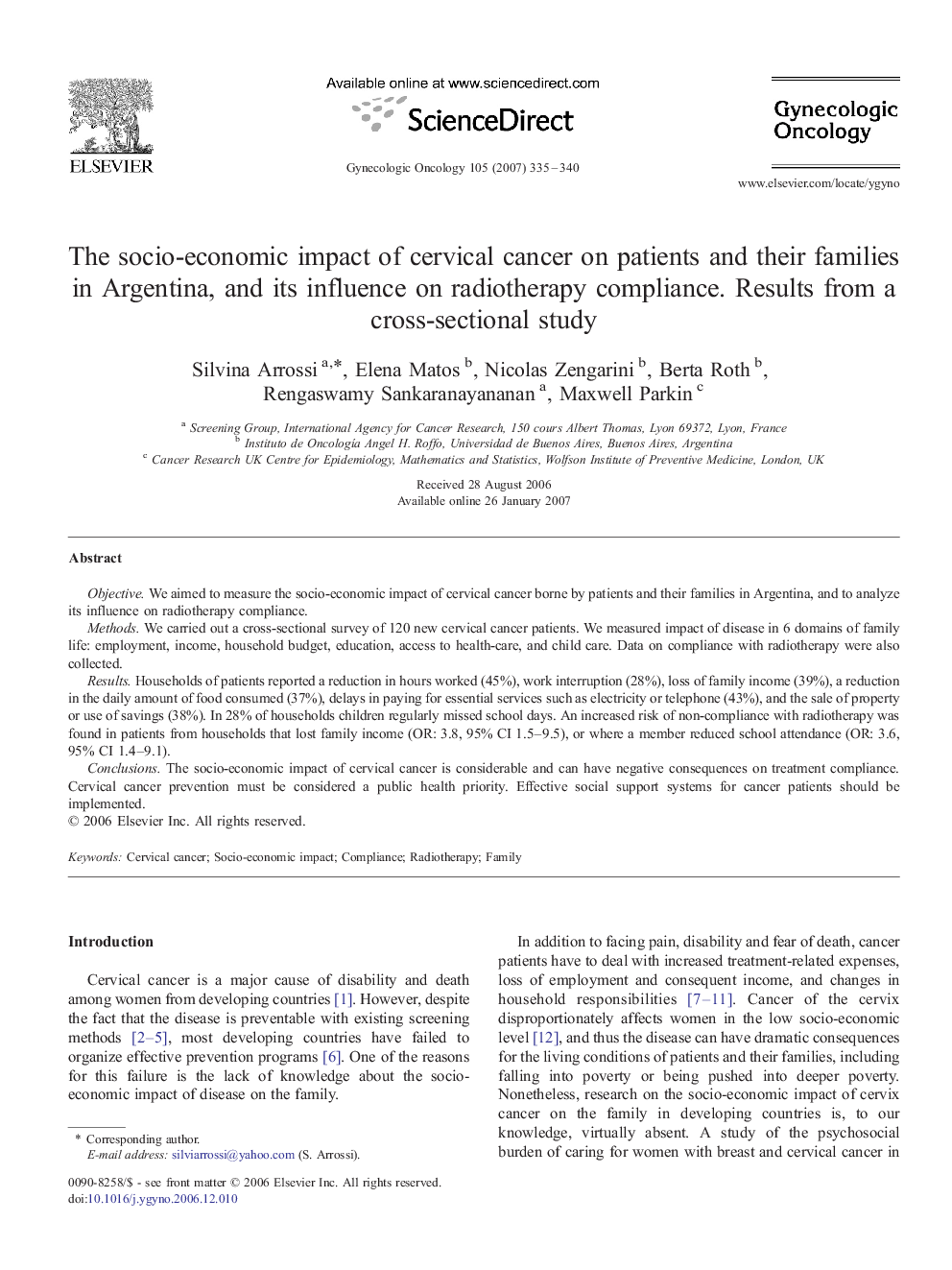| Article ID | Journal | Published Year | Pages | File Type |
|---|---|---|---|---|
| 3943438 | Gynecologic Oncology | 2007 | 6 Pages |
Objective.We aimed to measure the socio-economic impact of cervical cancer borne by patients and their families in Argentina, and to analyze its influence on radiotherapy compliance.Methods.We carried out a cross-sectional survey of 120 new cervical cancer patients. We measured impact of disease in 6 domains of family life: employment, income, household budget, education, access to health-care, and child care. Data on compliance with radiotherapy were also collected.Results.Households of patients reported a reduction in hours worked (45%), work interruption (28%), loss of family income (39%), a reduction in the daily amount of food consumed (37%), delays in paying for essential services such as electricity or telephone (43%), and the sale of property or use of savings (38%). In 28% of households children regularly missed school days. An increased risk of non-compliance with radiotherapy was found in patients from households that lost family income (OR: 3.8, 95% CI 1.5–9.5), or where a member reduced school attendance (OR: 3.6, 95% CI 1.4–9.1).Conclusions.The socio-economic impact of cervical cancer is considerable and can have negative consequences on treatment compliance. Cervical cancer prevention must be considered a public health priority. Effective social support systems for cancer patients should be implemented.
